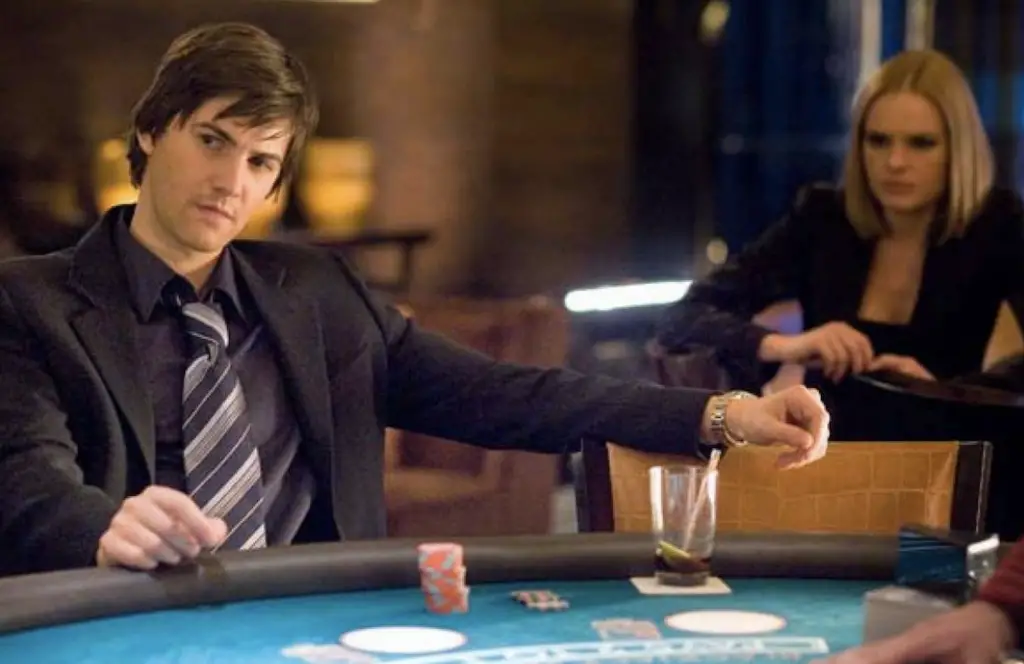
Sometimes it’s just a small change, a small addition (or in some cases, a subtraction) that turns an otherwise good, small movie that would have been forgotten in succeeding years into an
enduring classic.
Although it is impossible to accurately predict how a movie will be remembered, the fact remains that “25th Hour” is one of Spike Lee’s greatest films — seamlessly merging personal drama against a canvas of larger social significance on a level worthy of “Do the Right Thing.”
Lee’s brilliant stroke: taking David Benioff’s novel of a middle class white drug dealer’s last night before beginning a prison sentence, written well before the events of Sept. 11, 2001, and creating an ode to New York post 9/11.
At its heart is a personal drama. Monty (Edward Norton, in an performance worthy of an Oscar nomination) wanders around like a ghost — he spends his last day saying goodbye, a day which will culminate with a party thrown by his friends. They are Jakob (Philip Seymour Hoffman), a high school teacher and social loser who has a fixation on a 16-year-old student in his class (Anna Paquin); and Francis (Barry Pepper), a stockbroker at a small, high-pressure firm.
The gorgeous Rosario Dawson is Naturelle, Monty’s girlfriend, who is frustrated at Monty’s lack of tenderness toward her on his last day. Monty keeps his distance from Naturelle, partly because he suspects she may have snitched on him, but mostly because he doesn’t want to get too close to someone whom he will miss very much.
There is some tension as well, as suggested by the hulking presence of Kostya (former NFL star Tony Siragusa), a member of the Russian mafia who bankrolled Monty and is now concerned he may give the police information about the organization in exchange for less prison time.
The film’s bravura sequence occurs when Monty visits his father (Brian Cox), a reformed alcoholic who runs a bar. As they eat lunch, his father beats himself up over Monty’s mistakes, blaming himself for being a bad father. Monty assures his father that he made his
own choices, and to escape the oppressive atmosphere of the meeting, he steps into the bathroom.
There, in an inspired riff, Monty, talking into the mirror, rails against every ethnic group in New York, accompanied by an energetic Lee montage that brings the city to life. Toward the end of the vitriolic monologue, drained, Monty realizes that there is one person to say “F**k you” to, and that is himself.
For once, Lee doesn’t hit the audience over the head with an anvil to drive home his social point. He never expressly ties Monty’s situation to 9/11, but the event hovers in the background. Francis, a shady Wall Street character in the era of Enron, has a condo that overlooks ground zero. With the former site of the World Trade Center in the background, Francis and Jakob talk of the future — their own, and Monty’s.
The main point of “25th Hour” is that we all have our own personal 9/11’s — our own personal Enrons. There is a point in each of our lives where we’ve taken a wrong turn and then gone too far. Francis knows that sooner or later, the bottom will fall out unless
he changes his ways. Jakob knows it is wrong to lust after a 16-year-old girl, and Naturelle must deal with her own demons — she knew what her boyfriend did for cash, and because she benefited from it, she said nothing.
What’s beautiful about “25th Hour,” however, is it isn’t just elegiac in tone. The feeling at the end is different than the angry confusion felt as the end credits rolled in “Do the Right Thing.” There is anger, there is frustration, there is a hard edge. But there is also an inner message of hope and redemption, a love/hate poem — and mostly love — to New York, and also, America itself.

